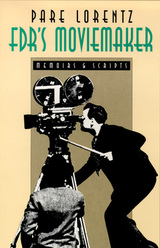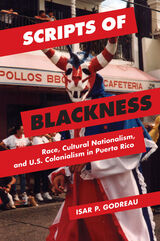
"The films of Pare Lorentz are acknowledged masterpieces of world cinema. They are groundbreaking documentary records of our country in the hard years of the Depression." —William M. Drennen, Jr.In the depths of the Great Depression, the U.S. Government produced a series of films about the pressing problems facing the nation—drought, flood, poverty, and slums. Starting with a minuscule initial budget of $6,000, Lorentz, a young film critic from New York who had never made a motion picture, was hired to head the project. The first fruit of his labor, The Plow That Broke the Plains, was a moving and dramatic account of the Dust Bowl that met with immediate and critical acclaim. Lorentz followed up his first film with The River, a history of the Mississippi River Basin and the effect of the Tennessee Valley Authority on the area. Both films demonstrated the potential of the documentary as a powerful impetus to social change, prompting widespread discussion not only of the problems they presented but also of the documentary form itself. This book combines the autobiographical history of a creative communicator and pioneer documentary filmmaker with the full scripts of The Plow That Broke the Plains, The River, Ecce Homo, and The Fight for Life.


Based on an ethnographic study of the barrio of San Antón in the city of Ponce, Scripts of Blackness examines institutional and local representations of blackness as developing from a power-laden process that is inherently selective and political, not neutral or natural. Godreau traces the presumed benevolence or triviality of slavery in Puerto Rico, the favoring of a Spanish colonial whiteness (under a hispanophile discourse), and the insistence on a harmonious race mixture as discourses that thrive on a presumed contrast with the United States that also characterize Puerto Rico as morally superior. In so doing, she outlines the debates, social hierarchies, and colonial discourses that inform the racialization of San Antón and its residents as black.
Mining ethnographic materials and anthropological and historical research, Scripts of Blackness provides powerful insights into the critical political, economic, and historical context behind the strategic deployment of blackness, whiteness, and racial mixture.

Writing and recording are key cultural activities that allow humans to communicate across time and space. Whereas Old World writing evolved into the alphabetic system that is now employed around the world, the indigenous peoples in the Americas autonomously developed alternative systems that conveyed knowledge in a tangible medium. New World systems range from the hieroglyphic script of the Maya, to the figural and iconic pictographies of the Aztecs, Mixtecs, and Zapotecs in Mexico and the Moche in Peru, to the abstract knotted khipus of the Andes. Like Old World writing, these systems represented a cultural category that was fundamental to the workings of their societies, one that was heavily impregnated with cultural value.
The fifteen contributors to Their Way of Writing: Scripts, Signs, and Pictographies in Pre-Columbian America consider substantive and theoretical issues concerning writing and signing systems in the ancient Americas. They present the latest thinking about these graphic and tactile systems of communication. Their variety of perspectives and their advances in decipherment and understanding constitute a major contribution not only to our understanding of Pre-Columbian and indigenous American cultures but also to our comparative and global understanding of writing and literacy.
READERS
Browse our collection.
PUBLISHERS
See BiblioVault's publisher services.
STUDENT SERVICES
Files for college accessibility offices.
UChicago Accessibility Resources
home | accessibility | search | about | contact us
BiblioVault ® 2001 - 2024
The University of Chicago Press









